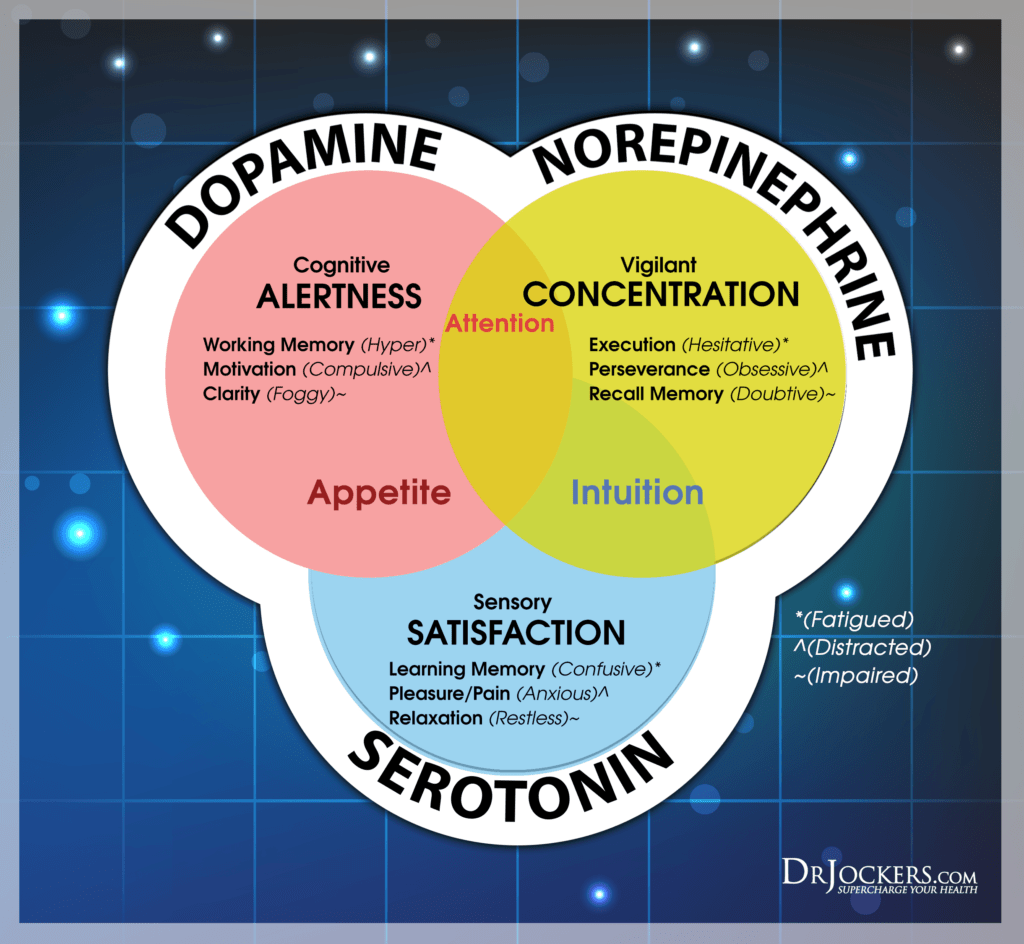For so many years, ADHD was thought to be something only young boys had. Bad behavior in the classroom, impulsivity, hyperactivity, or bad grades were thought to be the only signs. At one point it was actually called a behavior disorder. Behavior is more like a response to some of the symptoms, and it really is all about the brain. Generally, there are differences between boys and girls with ADHD. So understanding girls with ADHD can present differently is important. Once you understand the differences, you will be able to help your daughter if she has been diagnosed with ADHD, or if you are suspicious she might have it.
In terms of research, the first to include girls in a study on ADHD was in 1979, but comprehensive research on girls with ADHD wasn’t until the 1990s. Dr. Stephen Hinshaw and his team from the University of California, Berkeley were pioneers in this field. The delay in including girls in research may have been due to the previous definition of ADHD. A behavioral disorder that was observed in boys who couldn’t sit quietly for many (too many) hours and “pay attention” in school.
If we focus on behavior alone, boys can generally be more disruptive in the classroom, or in terms of hyperactivity and impulsivity, more externally observed. But what we know now, is that ADHD is more of a neuro-developmental, brain-based condition, with behaviors being a response to the brain and environment. Hyperactivity and impulsivity are more observable behaviors, but inattentiveness isn’t as observable, and definitely not disruptive.
1. Girls with ADHD can be shy and daydreamy or hyper-talkative, talk too fast, and be impulsive.
For example, my best friend since 7th grade was diagnosed later in life, like me. Our symptoms look very different. We became friends because our 7th-grade science teacher, Ms. Foy, put us together to learn CPR. Because I was so quiet and shy, and my BFF was loud and talkative, she thought we would even each other out. Well, she was right!

I can’t say that I got her to talk less, but she did get me to talk more.
My diagnosis is the combined type. My hyperactive symptoms are internal and external. The internal symptoms show up as internal restlessness and cognitive anxiety.
My external symptoms were the occasional impulsive blurting out of something mean if I was hurt, interrupting others, and a constant need to fidget. I have learned not to say everything I am thinking out loud and I don’t interrupt the way I used to. But I still fidget, and if I could rock in a rocking chair all day, I would be happy.
These symptoms didn’t get me in trouble in the classroom because I was more shy, highly sensitive, a people pleaser, and a rule follower. Getting called out in the classroom would have been way too anxiety-provoking so I avoided that at all costs. I worked hard but my grades weren’t consistent. I would do well in some classes and not so well in others. My effort didn’t always match my results on tests.
My BFF, on the other hand, would get in trouble for talking too much in class. She was more adventurous (not so much a rule follower) and wasn’t a people pleaser (in a good way). She was also super smart, so her effort did match her results more often.
2. Girls can be people pleasers (like myself) which can be a motivator to do well in school.
This doesn’t mean school is easy. Girls tend to create coping skills to manage and mask the symptoms. However, maintaining the coping skills can cause a lot of anxiety. Since girls’ symptoms tend to be more internal than external, and they tend to do well in school, girls can get missed more easily. And when girls with ADHD have created coping skills, had other systems in place to help mask symptoms, and do well in school, ADHD may not be observably present until a major life transition like college or becoming a mother.
3. Children, boys and girls, with ADHD tend to be 3 to 5 years behind in neuro-developmental maturity compared to their chronological age.
Girls with ADHD still mature faster than boys with ADHD. But you may notice some differences compared to their neuro-typical peers. For example, if your daughter is 13 years old, she might have emotional outbursts that look more like an 8 to 10-year-old. This is normal for a neuro-diverse child. She will catch up. Delayed maturation doesn’t mean stunted maturation.
It is important to meet your child where they are, not where you think they should be.
Teaching emotional intelligence is key for any child. If she is having an emotional outburst, give her space to calm down. Then get curious about what she was feeling, and listen with compassion.
4. Girls with ADHD can also have more difficulty in relationships.
Since girls tend to be more relationally aggressive, especially in middle school, their relationships can impact self-esteem. Sometimes girls with ADHD, when angry or hurt, can blurt out whatever pops into their head. And it can be vicious (what I did). The fallout can be confusing and lead to shame. When this happens, it is common for girls with ADHD to avoid social interactions in order to keep from experiencing further confusion and shame.
Many people with ADHD suffer from what is called rejection sensitivity dysphoria or RSD. This describes intense emotional pain when there is real or perceived criticism, feeling rejected, or feeling like they have disappointed someone they care about. The emotional pain is so severe that it can cause what looks like a major depressive episode. And if this response is met with judgment, like, “You are overreacting”, or “You are too sensitive”, the experience is even more demoralizing.
5. When girls with ADHD hit puberty, there is even more emotional intensity, followed by more internalized anxiety and depression.
Traditional social expectations put on girls can impact how they feel about themselves. This is because traditional social expectations are in conflict with some of her traits and symptoms. This conflict exacerbates internalized anxiety and depression. If left untreated, girls with ADHD are at a higher risk for self-harm and suicide. I know this is a scary statement for any parent to read. But the point is, if she goes untreated, she is more at risk. So if you suspect your daughter might have ADHD, getting her evaluated is really important.
6. This is also a time when more risk-taking behaviors can show up like substance abuse or having unprotected sex.
Hormonal shifts can impact her mood, behavior, and ADHD symptoms. This is due to estrogen dropping during the luteal phase of her menstrual cycle. Estrogen is responsible for modulating the neurotransmitters serotonin and dopamine. These neurotransmitters are also known as the “feel-good hormones”. There is a dysregulation of dopamine and norepinephrine (made from dopamine) in the brains of people with ADHD.

A further dysregulation of these neurotransmitters can really make navigating everyday life difficult, on top of an already complicated time in a girl’s life.
7. So what are some things you can do to find out if your daughter has ADHD?
The are different ways of getting a proper diagnosis.
- Your pediatrician is an option. Typically pediatricians will give you the Vanderbilt assessment for parents as well as one for you to give to your child’s teachers.
- Any qualified psychiatrist, psychologist, or therapist who specializes in ADHD can also do assessments and diagnose.
- A psychological assessment can be helpful to also uncover any other issues your child might be struggling with like a learning difference, anxiety, depression, etc.
8. Types of support if your child is diagnosed with ADHD:
- If she is struggling in school, you may want to talk to the school about providing a 504 plan or IEP accommodations. These accommodations or treatment goals are designed by you, your child’s teachers, the school counselor, and your child if she is in high school, in order to help her work with her brain and succeed. If she is seeing a therapist, coach, or any other type of support, that person can also attend the meeting as an advocate.
Unfortunately, not all educators have had the opportunity to be trained to truly understand the complexity of ADHD. You will probably still have to advocate for your child if their accommodations aren’t being consistently honored. Depending on your child’s age, you will want to encourage her to advocate for herself as well.
Each new school year, you meet with the school to see if certain goals have been met and are no longer applicable because your child has mastered the skill, and if new goals need to be added. - An ADHD-specific coach or an Executive Function coach – this person can be just for your child, the family, or you, the parent.
- A therapist who specializes in ADHD
- Social skills groups for kids with ADHD
- Your (Parents) understanding of how her brain works might be the most important support your child needs.
- Medication – Not every child needs stimulant medication. However, whatever decision you make, medication or no medication, make sure it is an informed decision. I see many parents automatically say no to medication without having done any due diligence.
- Find support for you. Whether it is with your own therapist, parent coach, other parents who also have a neurodivergent child, or attending the yearly CHADD conference.
If your daughter does have ADHD, keep in mind, that parenting her will require more perseverance than parents of a non-ADHD child.
Parents of an ADHD child “will find themselves having to supervise, monitor, teach, organize, plan, structure, reward, punish, guide, buffer, protect, and nurture their child far more than is demanded of a typical parent. They also will have to meet more often with other adults involved in the child’s daily life – school staff, pediatricians, and mental health professionals. Then there is all the intervention with neighbors, Scout leaders, coaches, and others in the community necessitated by the greater behavior problems the child is likely to have when dealing with these outsiders.”
Dr. Russell Barkley
I don’t share this to scare you. I share this because if your daughter has ADHD, you probably feel stressed. You may be judging yourself because it is so hard. I encourage you to be kind to yourself and know you aren’t being dramatic, or a bad parent. Parenting a child with ADHD IS different than parenting a neuro-typical child. But parenting any child takes a village. Explore your options from the list above.
If some of this information resonates with you personally, you may want to consider exploring whether you also have ADHD. While there are other causes, ADHD is also 75% genetic, so your daughter likely got it from you or another family member. And parenting a child with ADHD while you as the parent have ADHD can be even more difficult.
This article might be a lot to take in, but finding the right help and support can make it so much easier. If you find your daughter does have ADHD, you will also notice many amazing things about her, and as long as you and she are working with her brain, it will be a beautiful ride.
Jacqueline V. Cohen is a licensed professional counselor and an ADHD-certified clinical specialist provider specializing in perinatal mental health and adult ADHD. To learn more about her services, you can go to her website. You can also contact her by email.
For more resources:
Kathleen Nadeau Ph.D., Ellen Littman Ph.D., and Patricia Quinn MD wrote a book on this topic that is a great resource for more in-depth information.
ADHD: What Everyone Needs To Know by Stephen P. Henshaw and Katherine Ellison
Duke Center for Girls and Women with ADHD
Driven to Distraction by Edward Hallowell, MD, and John Ratey, MD
ADHD 2.0 by Edward Hallowell MD, and John Ratey MD
The Essential Guide to Raising Complex Kids with ADHD, Anxiety, and More by Elaine Taylor-Klaus, PCC, CPCC



